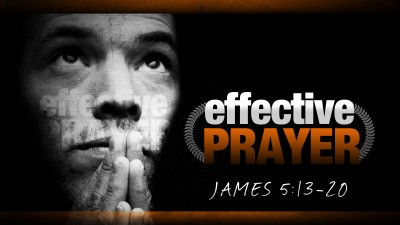I have had the privilege of working on the field at large stadium events where altar calls have been given, and I have also offered many appeals to come forward as well, primarily in the early years of my ministry.
Let me begin by saying that anytime we give an honest appeal for a person to turn to God, it’s a good thing. But in our zeal to “get people into the kingdom,” we sometimes run the risk of offering false assurance. This is a very real danger in the church today. Many come forward after a sermon, but do they change? Often, it’s the, “I’ll give Jesus a try” attitude, rather than a broken heart desperately seeking a Savior—the American gospel versus the true gospel.
The success rate of genuine conversions at crusades hovers between 5% to 15%. Some may argue, “But seeds are planted.” Yes, seed are planted, but are they seeds of salvation or seeds of false assurance?
I have great respect for men such as Billy Graham and Greg Laurie, and for the mass crusades that draw thousands to hear the gospel. I wish that there were more. I’m not challenging this type of ministry…I’m challenging the “overall” approach to altar calls.
Genuine faith produces genuine fruit; yet, many times, we assure people of salvation minus the fruit. As long as a hand was raised or a prayer was said, we’re good with God. But the Bible actually says something different. Biblical repentance involves turning from sin and turning to God—it’s a condition of the heart that produces fruit.
In Acts 3:19, we read that new believers didn’t simply pray and “try Jesus,” they saw their need for a Savior: “Repent therefore and be converted, that your sins may be blotted out…” The condition of our heart (not a prayer, a raised hand, or a step forward) secures our redemption—do we recognize sin and repent, or do we willingly continue on the same pre-salvation course?
Unfortunately, it’s not until after a genuine conversion experience that many realize that they were never saved to begin with—they had religion but not a relationship; they said a prayer but the heart never changed. Titus 1:16 and James 2:14 both conclude that many people “say” that they know God, but deny Him by their lifestyle.
Numerous times when I’ve counseled people about their need for a Savior, I’ve heard, “Oh, I did that already. I’m good.” My question is, “Did what?” True repentance produces genuine fruit—a transformed life, a love for God and His Word, sincere humility, selfless love, true repentance, and so on.
Granted, it’s not about perfection, but direction. Is the direction of your heart toward God, or toward the world? “Love not the world, neither the things that are in the world. If any man love the world, the love of the Father is not in him” (1 John 2:15 KJV).
Sadly, we may be desensitizing our generation to the gospel by offering false assurance. I offer an example because it is a common occurrence. Some time ago, a man raised his hand in response to my message. After the service, I asked if he wanted to be baptized. He said, “I’m not ready for that. I don’t want to get that serious.” I later found that he continued in a very destructive lifestyle and told others, “I’m not ready to give up my lifestyle.”
Clearly, there was no change in this man’s heart. Raising his hand was a superficial response and a form of self-preservation (I don’t want to go to hell). In these cases, many are motivated by what they are willing to take (heaven) rather than what they’re willing to give up (sin).
I’m not against altar calls per se’…giving anxious souls the opportunity to repent is biblical, and I’m definitely not against praying a prayer of repentance. But I am against sheer emotionalism and half-hearted considerations.
We all sin and fall short, but genuine conversion results in a broken and penitent heart (genuine fruit). John the Baptist challenged the people to “bear fruit worthy of repentance” for this very reason (Luke 3:8).
In counseling people who lack the fruit of conversion, I do not refer back to a prayer they said, but to repentance…did it occur? Prayer without repentance is like a car without an engine. It might look nice but it’s not going anywhere.
Please don’t misunderstand: change is a lifelong process with many setbacks; sinners sin, but there should be some indication that a person is being transformed by the gospel. Jesus said, “By their fruit you will know them” (Matthew 7:16).
When altar calls are given, we must explain genuine repentance in light of dying to self, turning from sin, and confessing Christ as Savior and Lord. Our job is not to soften the gospel and report exaggerated numbers of conversions to impress people, our job is to lovingly and boldly preach the gospel in its totality.
While there is flexibility and freedom in how we present the gospel, we must be crystal clear in explaining that salvation is a supernatural act of God that produces change. A.W. Tozers sums it up well, “It is change, not time, that turns fools in to wise men and sinners into saints.”


